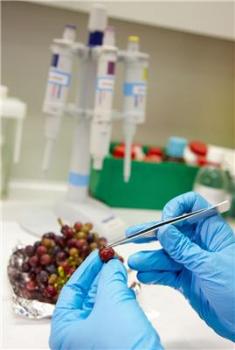Mar 22 2013
In a highly detailed study, Tecnalia has calculated the carbon footprint of the Grupo Faustino’s 8 most representative wines throughout their lifecycle; from the field work right up to the end of the bottle’s useful life.
 Tecnalia
Tecnalia
A wine’s carbon footprint is the piece of information that allows one to know the quantity of greenhouse gases emitted during its production process. Tecnalia has enabled the Grupo Faustino to be the first winery to find out the carbon footprint of its eight most representative wines, following an exhaustive study, which is the first of its type in its field.
Tecnalia worked throughout 2012 on a detailed study for the Grupo Faustino winery. As a result, the carbon footprints have been obtained of the Group’s eight most representative wines, which also constitute the whole range of wines in our country: white, vintage, reserve, signature, etc.
Tecnalia has analysed all the phases in the life cycle of the eight wines selected: agricultural phase (diesel consumed by journeys and tractor work in all the field tasks, consumption of agrochemicals, consumption of electrical power for irrigation, etc.); production phase (consumption of electrical power and heating oil, consumption of winemaking products and packaging materials, etc.); distribution phase (transporting of bottles); use phase (cooling of the bottles for consuming the wine); and finally, the end-of-life phase (management and transport of waste products, recycling, upgrading or landfill).
Unlike other studies carried out, it should be highlighted that the last 2 phases in the life cycle (use and end-of-life) have been taken into consideration and that no other winery group has calculated and certified its carbon footprint for such a large number of wines.
The results obtained by Tecnalia show that the carbon footprint of the eight Faustino wines analysed is within the range of values close to 1,000 grams of CO2-equivalent. According to the expert authors of the study, these are not high values but come within the average.
Commitment to sustainability
The carbon footprint study carried out by Tecnalia is part of the environmental commitment policy implemented by the group of wineries. In fact, the Grupo Faustino has managed to cut energy consumption by 20% and water by 30% within the environmental sustainability programme begun in 2005, and it has set itself the objective of a 30% cut in electrical power, as well as CO2 emissions and waste by 2015.